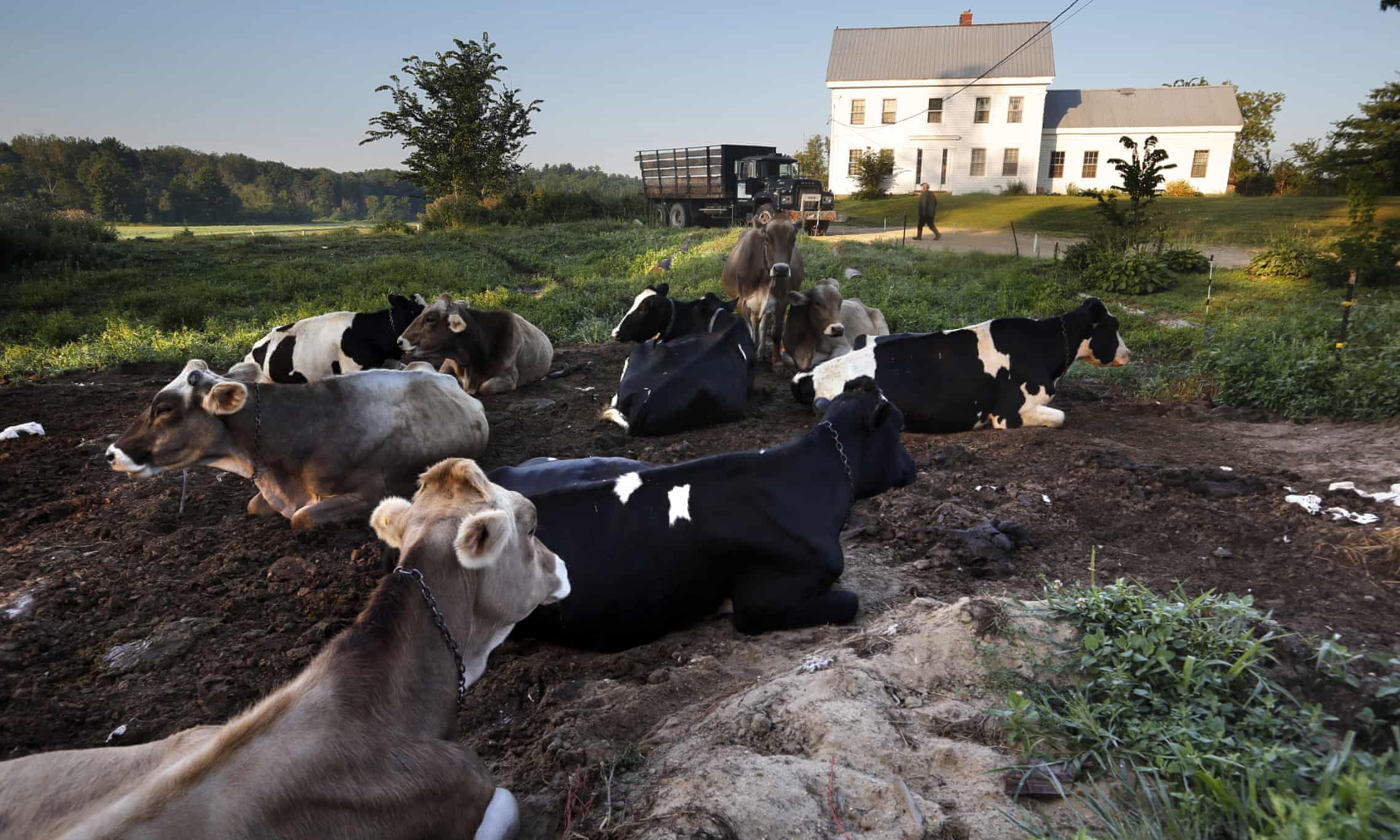 Dairy cows rest outside at Stoneridge Farm in Arundel, Maine, in August 2019. The farm was forced to shut down after sludge spread on the land was linked to high levels of PFAS in the milk. Photograph: Robert F Bukaty/AP
Dairy cows rest outside at Stoneridge Farm in Arundel, Maine, in August 2019. The farm was forced to shut down after sludge spread on the land was linked to high levels of PFAS in the milk. Photograph: Robert F Bukaty/AP
Residual sludge from treating waste water has been turned into a money-spinner but what are the costs to health of ‘the most pollutant-rich manmade substance on Earth’?
By some estimates, Americans send about 300m pounds of feces daily from the nation’s toilets to wastewater treatment plants.
While the water is cleaned and discharged, the remaining toxic sewage sludge stays at the treatment plant, and it’s what Sierra Club environmentalist Nancy Raine calls “the most pollutant-rich manmade substance on Earth”.
This “biosolid” sludge is expensive to dispose of because it must be landfilled, but the waste management industry is increasingly using a money-making alternative – repackaging the sludge as fertilizer and injecting it into the nation’s food chain.
Now the practice is behind a growing number of public health problems. Spreading pollutant-filled biosolids on farmland is making people sick, contaminating drinking water and filling crops, livestock and humans with everything from pharmaceuticals to PFAS.



